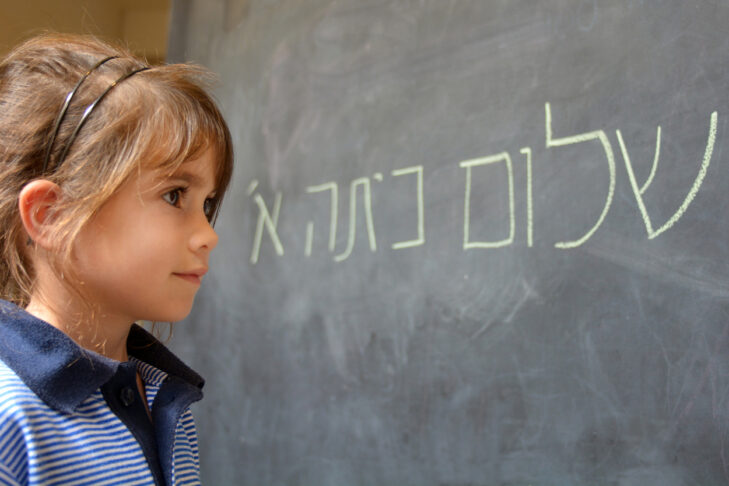Going into my first year as a teacher with BJEP, I knew for certain that I wanted to ensure that my students could read Hebrew. I was teaching the second/third class, the perfect age group for Hebrew literacy. However, with a curriculum that needed to instill knowledge of history and culture as well as simply teach Hebrew, I needed to find a balance between the two.
Hebrew literacy is a key skill for young Jews approaching their b’nai mitzvot. It is also a skill that is being deemphasized in many Hebrew schools, noticeably in the Conservative movement of which I am a part. While reading Hebrew should certainly not be a prerequisite to being a practicing Jew, the ability to read Hebrew also makes many elements of Jewish services and practice more accessible. I did not want to deny that accessibility to my students. Despite centuries of diaspora, the Jewish people have retained Hebrew as a religious and then later principal language. As the next generation of Jews, I feel as though we owe it to children like my students to pass on our knowledge of Hebrew.
My main fear going into Hebrew education was that my students would find it boring. They often responded well to more active or artistic activities. Sedentary desk work, with an emphasis on repetition and literary retention, seemed like something they wouldn’t particularly like. I didn’t want Hebrew school to feel like an extra day of school, but instead something different that my students could genuinely look forward to.
Imagine my surprise then, when my students did not just tolerate Hebrew learning, but loved it. One student mentioned that learning Hebrew felt like learning a secret code. They were genuinely proud when they remembered letters, retained knowledge far better than I had at that age, and showed a real willingness to learn. I had convinced myself that learning the Hebrew alphabet was something no second or third grader would ever respond to with enthusiasm, but my students proved me wrong.
My curriculum was fairly straightforward. After my students had mastered the aleph-bet song, I began to teach three to four letters per week. I would write out the letter, name, and sound on the board (for example, ב – vet – ‘v’ sound). My students then copied the information onto their own papers, and sometimes formed the letter in creative ways (with their bodies, in collage, etc.). I would then write out a list of basic (usually nonsense) words on the board using the letters we had learned, and students would sound them out. By the end of the spring semester, we had covered the whole Hebrew alphabet, and students could even sound out some basic prayers.
My takeaway from the experience of teaching the Hebrew alphabet is to never underestimate a child’s willingness to learn. My students were enthusiastic about Hebrew, adapted to the quirks of the language with ease, and showed genuine pride when they got things right and determination to improve when they got things wrong. Hebrew is not boring, nor is it useless—on the contrary, I found it to be one of the most valuable pieces of learning I did with my students this year. Moving forward, I hope to continue to help my students grow more comfortable and fluent reading in Hebrew, with the hope that they will be prepared for their b’nei mitzvot and enter Jewish spaces with more knowledge and confidence.
Naomi Stephenson (she/her) is a sophomore from Belmont and in her second year teaching at BJEP. Naomi is majoring in history and international and global studies and minoring in legal studies and English at Brandeis University.
BJEP on the Brandeis campus is more like summer camp than school, for grades K-7, a Madrichim teen program (grades 8-12) and B-Mitzvah program. Our educators in the classroom, who are Brandeis students, put a fun twist on learning while fostering critical thinking, communication and leadership skills. Through art, music and games, kids explore their Jewish values and Jewish identity, holiday celebrations, eco-Judaism, Hebrew and a B-Mitzvah cohort program. Learn more about BJEP.
This post has been contributed by a third party. The opinions, facts and any media content are presented solely by the author, and JewishBoston assumes no responsibility for them. Want to add your voice to the conversation? Publish your own post here. MORE


